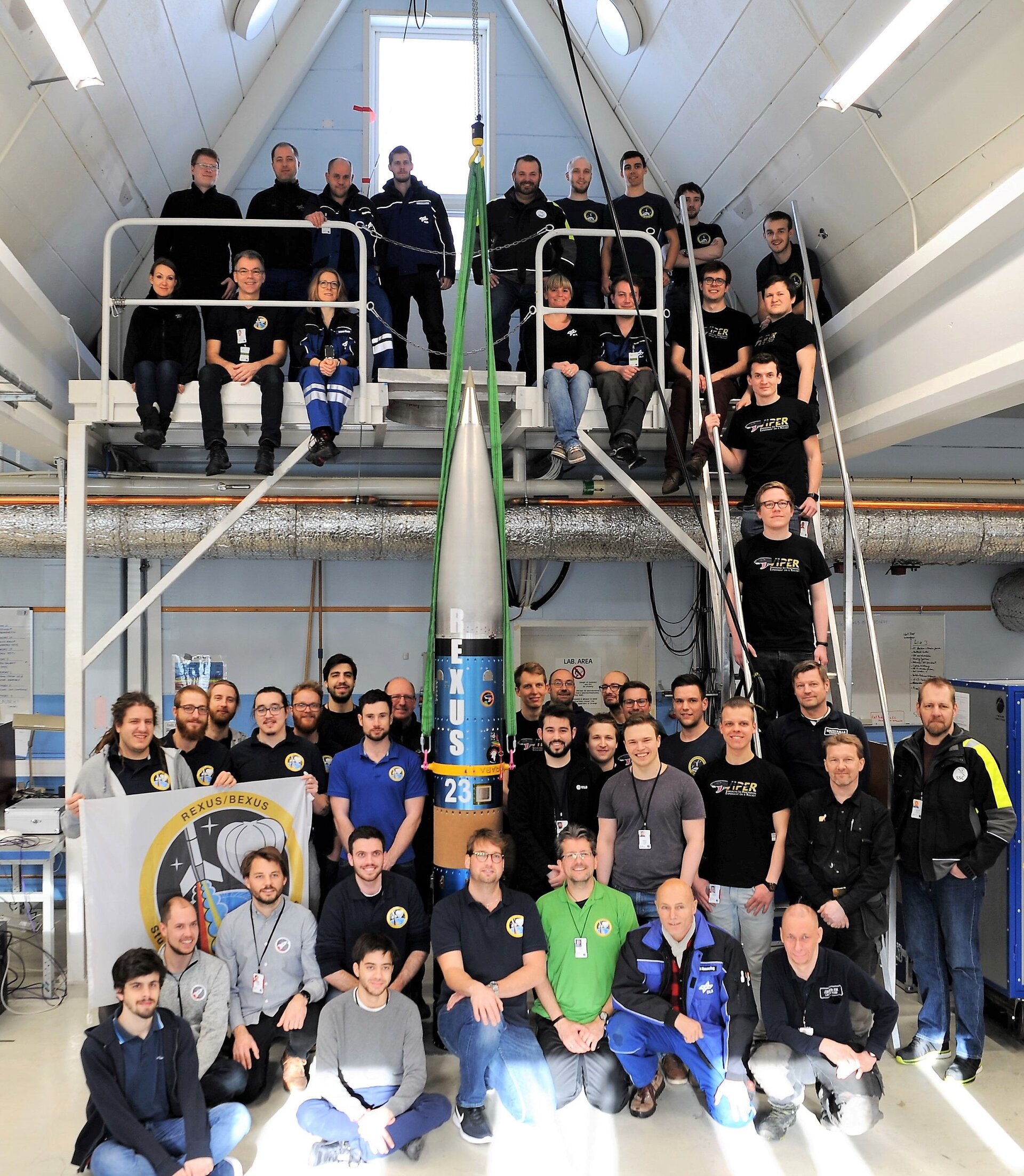REXUS 23 Launched!
Yesterday the REXUS 23 sounding rocket was launched from Esrange Space Centre in Northern Sweden, hoisting an assembly of student-built experiments to the edge of space!
REXUS 23 was originally planned to be launched in March 2018, but was postponed due to unforeseen issues with the launch of its sister rocket, REXUS 24. This meant that the student teams have been waiting, pensively, for one year while their experiments hibernated in Sweden’s arctic north, awaiting their flight.
After an early countdown start the rocket lifted off at 09:50 local time, and reached an apogee of just over 75km, before completing its parabolic trajectory and landing approximately 40km away from the space centre. The payloads were recovered on the same day by helicopter, and the teams are now working hard to analyse their results.
REXUS 23 hosted five student experiments, two sponsored by the ESA Education office and three sponsored by the German Aerospace Centre (DLR).
ARES II (Axial Retention Experiment for PMD Sponges II), first proposed for fight as ARES in 2015 and selected to participate in cycle 10 of the REXUS/BEXUS programme, investigated the behaviour of liquids in so called ‘sponges’ used as propellant management devices in spacecraft propulsion systems.The ARES team hail from the University of Applied Sciences and Arts (HES – SO) in Switzerland.

SPAN (SPAce Navigation using Signals of Opportunity), from the Faculty of Engineering of the University of Porto in Portugal, aimed to test the use of signals of opportunity to navigate as an alternative to current methods such as GPS. Such signals include digital TV and mobile phone signals, which are combined with a known starting point and highly accurate atomic clock. When asked about their experience in this campaign, the SPAN team said they had "a feeling of closure and accomplishment that at the same time will surely open many doors".
These teams shared their ‘space-flight’ with three German teams:
DAEDALUS (Research of an Atmospheric Reentry of a Glider) from JMU Würzburg; TESOS (In-flight temperature measurement with structurally integrated fibre optic sensors) from the Technische Universität München and VIPER (Vaporizing Ice Penetration Experiment on a Rocket) from FH Aachen University of Applied Sciences.
The REXUS 23 campaign is taking place as part of an extraordinary triple rocket campaign, and will be followed by the REXUS 25 and 26 flights planned for the next weeks.
The REXUS/BEXUS programme is realised under a bilateral Agency Agreement between the German Aerospace Center (DLR) and the Swedish National Space Agency (SNSA). The Swedish share of the payload has been made available to students from other European countries through a collaboration with the European Space Agency (ESA). EuroLaunch, a cooperation between the Esrange Space Center of SSC and the Mobile Rocket Base (MORABA) of DLR, is responsible for the campaign management and operations of the launch vehicles. Experts from DLR, SSC, ZARM and ESA provide technical support to the student teams throughout the project.
Congratulations to all teams and the organisers of the REXUS/BEXUS programme, and good luck with the next flights and data analysis!


